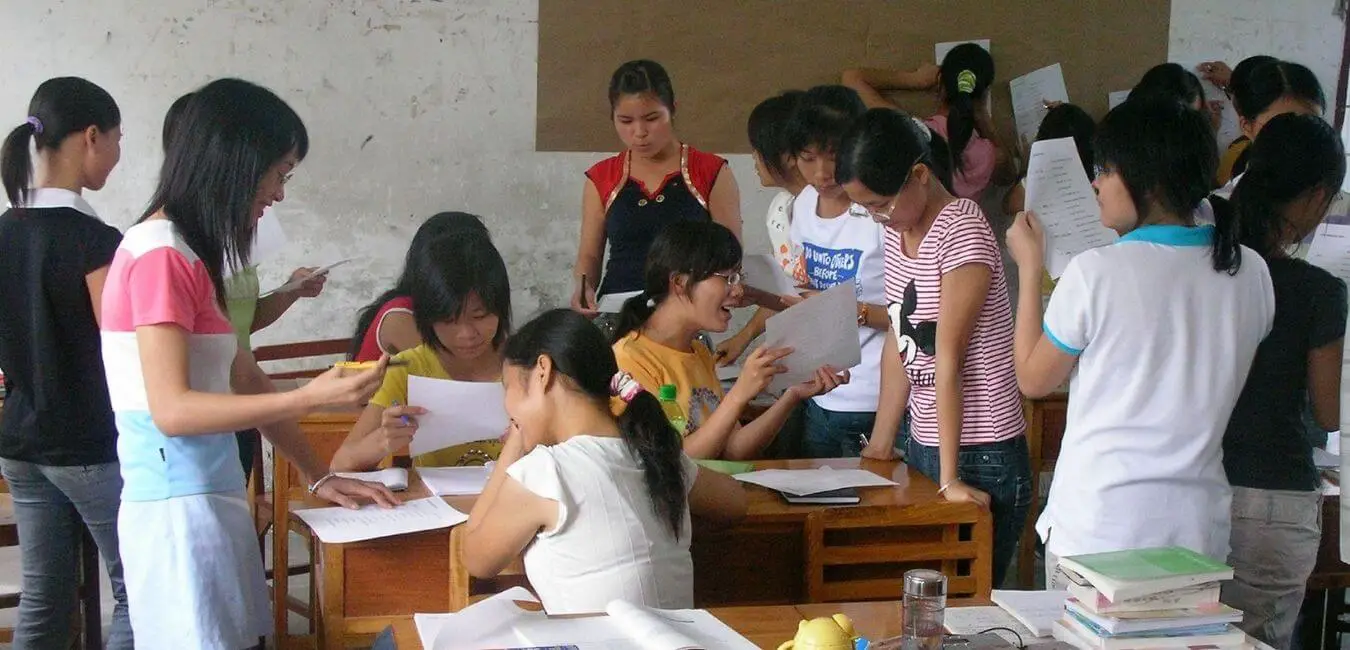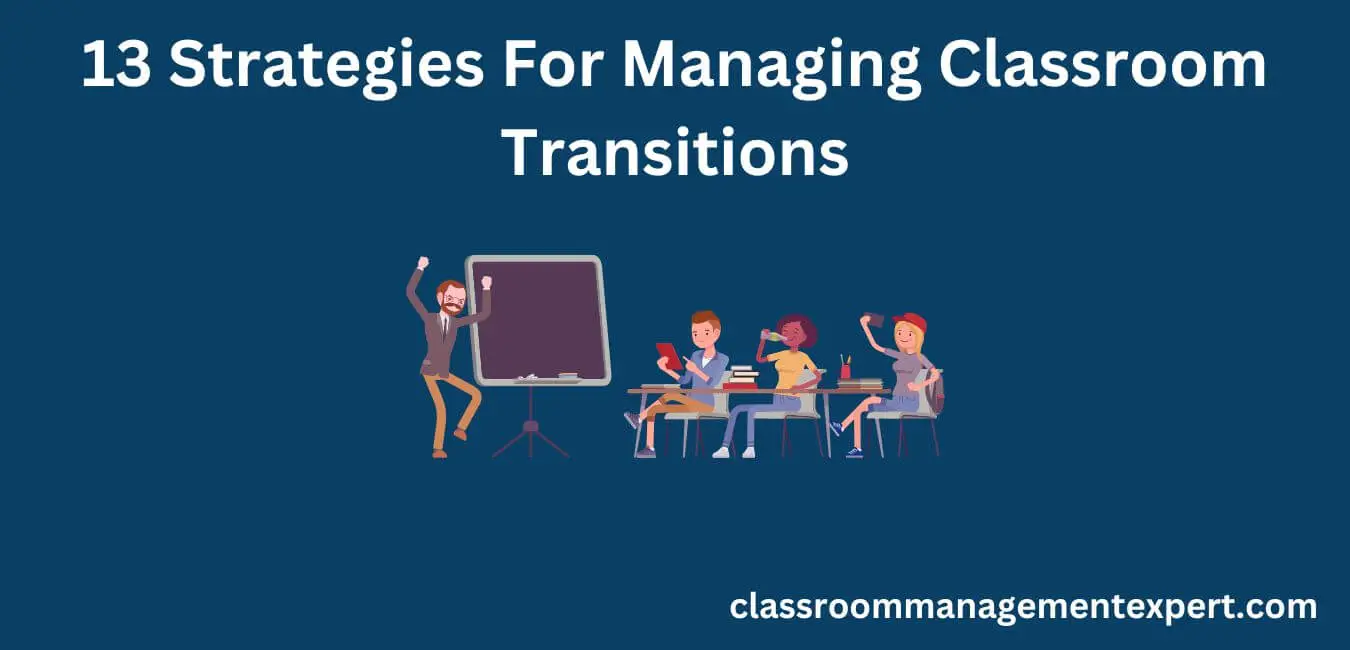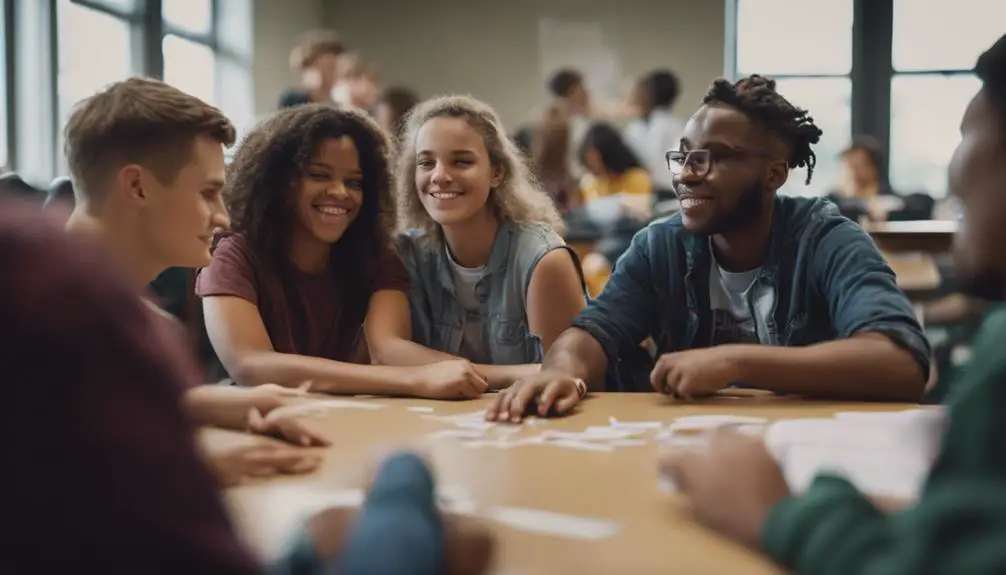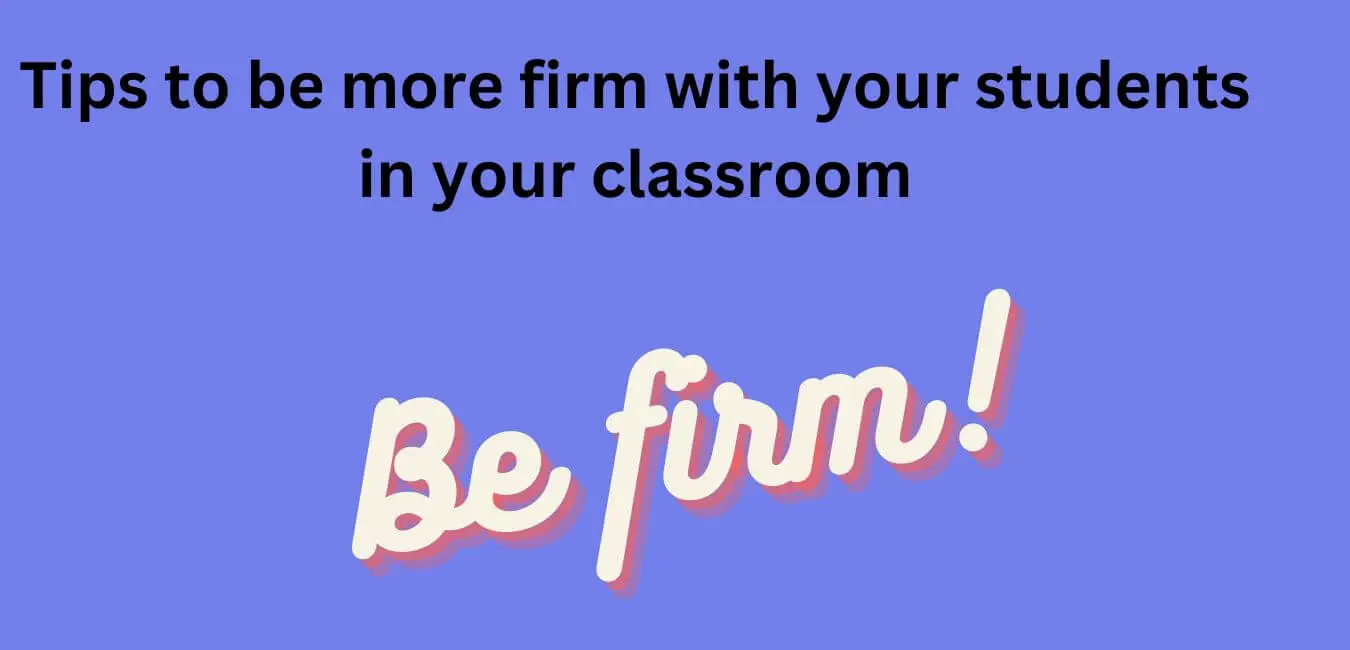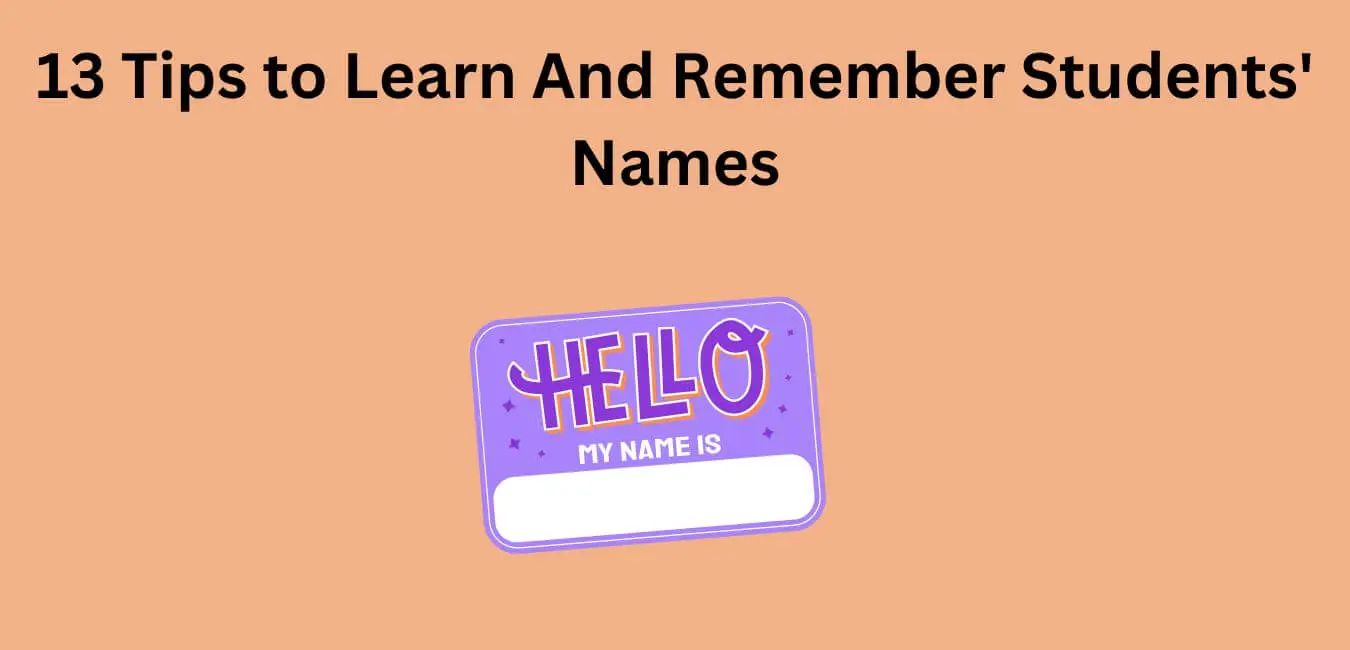I’ve been teaching for a while now and I know that there are going to be students in any given class you just can’t stand. Maybe they’re rude, maybe they always seem to be the ones who mess up the most in your lessons, or maybe they just don’t like you for some reason. No matter what it is, we all have those students we would much rather not deal with. The good news is that there’s no need to! In this blog post, I’m going to share eight ways you can handle difficult students, so you never have to see them again!
Should You Like All Your Students?
If you are a teacher, then the answer is no. You should not like all your students. For some people, especially new teachers, this may seem odd to hear. But it’s true – there are reasons why you shouldn’t like all of your students.
This is because of something called “affective filters.” Affective filters are things that affect how you see, interpret, and feel about the things around you. It is possible to have negative affective filters or positive ones.
For example, if someone is extremely shy, they may filter out positive social interactions with others. This means that they are less likely to think of people as being friendly or nice toward them. If someone has a disability, they may filter out things like stairs or tall curbs. This means they are less likely to notice these things when attempting to do an activity, like climbing the stairs in their own home.
This is true of teachers as well. If you have never liked your students before, then it’s possible that either you’re still getting used to your job, or you have negative affective filters that prevent you from liking any of your students.
Teachers can work hard on their own attitude problems by trying to be more open-minded. Before judging a student, teachers should give them the benefit of the doubt. If they are trying to do the best they can, then they should be given the chance to succeed.
It is also important for teachers to have a good attitude when they are around their students. If they stay positive, then it’s possible that this will transfer over in the form of the teacher being friendlier and more open with students. This can help increase student motivation and may even help prevent or stop bullying.
If a teacher can get past these potential problems, then it is possible for them to successfully like all their students. This will help teachers to have healthy relationships with their students and create a positive learning environment.
However, if a teacher struggles with a negative attitude or a disability that affects how they see their students, then they should not attempt to like all of them. This will just set them up for failure and stress. A teacher should not be expected to like all their students, just as students should not be expected to like all their teachers or classmates.
As long as a teacher can successfully help and work with each of their students in some way, then it does not matter if they like all of them or not. The only time when it would be possible for a teacher to like all their students is when they have negative affective filters, and even this may result in the inability to actually connect with many of their students.
As long as a teacher can try to relate with each of their students on some level, then it will be possible for them to help improve their relationships and all aspects of their job.
What May Cause You to Dislike a Student?
A teacher can dislike a student for any number of reasons. Whether they are trying to learn new material, too distracted to concentrate, or simply not doing what is asked of them, students can be difficult. Although you may not always encounter problems with some students, many times there are certain situations that will arise that will cause teachers to dislike one or more of their students. The following list gives some examples of reasons a teacher may feel this way:
1. Students frequently fail to turn in homework or do not complete what is assigned to them.
2. Students disrupt the class and distract other students from learning during class time.
3. Students always come unprepared for lessons and struggle with new material.
4. Students choose to not take the class seriously and put in little to no effort into their work.
5. Students cheat when completing projects or tests.
6. Students disrespect teachers and other students both in-person and through social media.
7. Students cause a disturbance during class time by moving around, talking to others, or coming in late.
8. Students do not follow the dress code and create a distraction during class time.
9. Teachers feel that they are unable to connect with students on any level.
10. The student has hurt or offended you in some way.
By considering these points, teachers will be able to avoid issues with students as well as help them achieve success.
How Can You Handle A Student You Don’t Like?
Do you have a student in your class that just rubs you the wrong way? Maybe he is not on task and disrupting the rest of the class, maybe she has a mouth like a sailor, and it seems like everything she says is rude. Whatever their exact problem may be, we all experience those students who we wish would decide to go and sit at another teacher’s desk. While this may be a long stretch from reality, we must find ways to handle these students and still try as hard as possible to not let them get under our skin.
1. Don’t be biased in your teaching.
Rationale: If you are prejudiced towards the student you are teaching, it may make it more difficult for them to learn.
2. Be clear with expectations.
Rationale: If the student knows what is expected they will be less likely to act out or behave undesirably.
3. Do not take it personally.
Rationale: It is important to remember that you are a teacher and their actions do not reflect on who you are as a person.
4. Be firm with consequences but be prepared for them to test boundaries.
Rationale: As long as consequences are fair, they will understand that their actions have a consequence.
5. Do not show favoritism with your other students, even if the student you don’t like is being cruel to them.
Rationale: Being biased can damage the trust of your entire class and prevent learning from going on.
6. Don’t feel guilty for making a student upset.
Rationale: If you are being unbiased, it is not your fault they are reacting poorly to the situation.
7. Be aware of how you say things and don’t be passive-aggressive.
Rationale: Being direct will help the student to respond better and improve your relationship.
8. Don’t comment on their appearance or personal life.
Rationale: This is not your place and will likely cause more problems.
9. Be consistent.
Rationale: If you are fair and consistent in all circumstances the student should understand that their actions have consequences regardless of who they are or how they feel about them personally.
10. Don’t blame yourself if you’re the target of a student’s negative behavior.
Rationale: You are not responsible for how they act, and you should do what is best for them as well as yourself and the other students in your class.
11. Don’t confront them through sarcasm.
Rationale: Sarcasm may cause them to feel disrespected and make the situation worse.
12. Don’t neglect them: they need to feel like part of the class, not that you’re ignoring them.
Rationale: If they feel lonely or outcasted it can make their negative attitude flourish.
13. Always be respectful.
Rationale: They will appreciate your actions and how you treat them.
14. Do not complain or gossip about the student with others, even other students.
Rationale: This will only make you look unprofessional and cause problems for everyone involved.
15. Be aware of how your body language is affecting the student’s mood and attitude towards you and the class.
Rationale: You want to make it clear you are in control of the situation, but not aggressive towards them. So, positive body language towards the student can help him/her put up behavior that will make you like them.
16. Be aware of how your tone can affect their mood and attitude towards you and the class.
Rationale: If you are unpleasant, they will be too.
17. Do not give up on students who misbehave or are disrespectful or those you don’t like.
Rationale: These students are difficult, but the more attention you give them the easier it will be to change their attitude. They are most likely to be those you don’t like, so don’t give up on them. Always give them the chance to get better. It is important to remember that everyone makes mistakes and deserves a second chance.
18. Find something you like about the student and comment on it every day, don’t make it obvious or insincere though.
Rationale: Reminding them of what they do well will help improve their behavior and attitude towards you as a teacher.
19. Be polite but inform the student their behavior is not acceptable.
Rationale: This should give them an understanding of boundaries and how to behave around you in the future.
20. If the student makes a mistake ask them to apologize, whether they meant it or not.
Rationale: This will help them learn the value of apologizing and showing respect towards you.
21. Don’t punish everyone else because one student is acting out.
Rationale: It’s important that every student in the class feels safe and respected by their teacher, punishing everyone for the actions of one student will discourage that.
22. Use positive reinforcement when they do something good, don’t make it obvious though.
Rationale: This is a great way to encourage them and will encourage other students in your class too.
23. Don’t let personal feelings towards the student affect how you treat them.
Rationale: You need to be able to recognize their negative behavior, but not let it affect your actions.
24. Don’t become emotionally invested in every student you meet.
Rationale: Offering help and guidance is great, but some students are just more difficult than others.
25. Do not accept disrespect from the student, but don’t escalate the situation.
Rationale: If they are disrespectful, it is important for you to tell them that.
26. Be clear with your boundaries and consequences for inappropriate behavior.
Rationale: This will help students understand how to behave around you in the future.
27. Don’t be afraid to refer the student to the school’s guidance counselor or other support services.
Rationale: Sometimes misbehaving students need a little extra help and guidance than their teachers can provide alone. If that assistance isn’t provided, then your relationship with them will remain strained.
28. Don’t push yourself too far in an effort to change the student’s attitude.
Rationale: You want to help them, but not at the cost of your own mental health.
29. Be clear with what you love and hate about teaching.
Rationale: If they know what you love and hate about teaching, then the student will also know how to behave so that they can get more of what they like.
30. Be firm when asking for respect, but not aggressive.
Rationale: This will help the student know when to stop without making them feel attacked or uncomfortable around you.
31. Don’t avoid conflict, but don’t antagonize the student either.
Rationale: Tension between a teacher and misbehaving students will always increase if it is ignored, better to address it right away.
32. Don’t do anything that will embarrass or humiliate the student but being stern is okay.
Rationale: There is a difference between embarrassing a student and keeping everyone in the class safe, don’t let emotions get in the way of that.
33. Don’t take it personally when a student acts out, but never show weakness either.
Rationale: If you’re going to be a teacher, then you need to show strength and confidence. If you don’t, the student will take advantage of that.
34. Give honest feedback when it is requested of you.
Rationale: Sometimes students just need some reassurance that they are making progress towards their goals.
35. Don’t touch the student if you don’t have to unless it is part of their learning process.
Rationale: Physical contact should be limited, but it doesn’t mean you can’t touch the student if it’s evident that they are struggling to understand.
36. Don’t pick on or belittle the student for good grades either.
Rationale: If they are doing well in your class, make sure you recognize their hard work in a positive way.
37. Open communication should be the cornerstone of any relationship, use this to your advantage with misbehaving students.
Rationale: This makes interactions between you and the student easier because it is proactive instead of reactive.
38. Don’t just address their bad behavior when it’s convenient for you, take time to listen to them as well.
Rationale: Interactions between you and the student should both be fair, set a schedule that leaves time for listening to each other.
39. Address the issue of bad behavior before it becomes a problem.
Rationale: Find out what’s going on with the student instead of just complaining about their behavior.
40. You can tell when you need to talk with the student about their behavior in person and when you should just send them an email.
Rationale: When there’s something serious going on it is easier for both sides if they hear it together instead of having rumors or hearsay affect how they see each other.
41. If a single tactic isn’t working, try something different instead of dwelling on what hasn’t worked before.
Rationale: Every student is different and there are no one-size-fits-all tactics that will work for everyone.
42. Don’t let the student get in the way of your own job and responsibilities, you need to take care of yourself too.
Rationale: If obligations aren’t met because you’re busy with something else, then you’re doing yourself and the student a disservice.
43. Don’t automatically assume that all of their bad behavior is willful or out of spite, look for other possible explanations first.
Rationale: There are always multiple ways to view even the worst situations, if there’s another way to see things then it’s worth considering.
44. Address the student’s bad behavior as soon as it happens, don’t let it build up.
Rationale: This shows them that you won’t tolerate their misbehavior and gives them a chance to fix it before things escalate.
Final Thoughts
Teachers need to be strong and confident to teach, but it is important not to let this affect your personal life. It’s also imperative that you maintain open communication with the student so they know what their boundaries are. When a problem arises or you want them to excel, make sure they have everything they need for success including acknowledgment of good grades and praise when warranted. As difficult as teaching can be at times, remember there is always more than one way to view an issue if we’re willing; which means we should never assume anything without first considering all possibilities. Be kind to yourself and don’t let your job take over your life. Address misbehavior quickly so it doesn’t get worse under the guise of prioritizing other obligations that still need tending to. You don’t have to like every student you teach, but you do have an obligation to help them succeed in your class even if it means taking time out of your day for personal interaction with them. Read more articles here.

